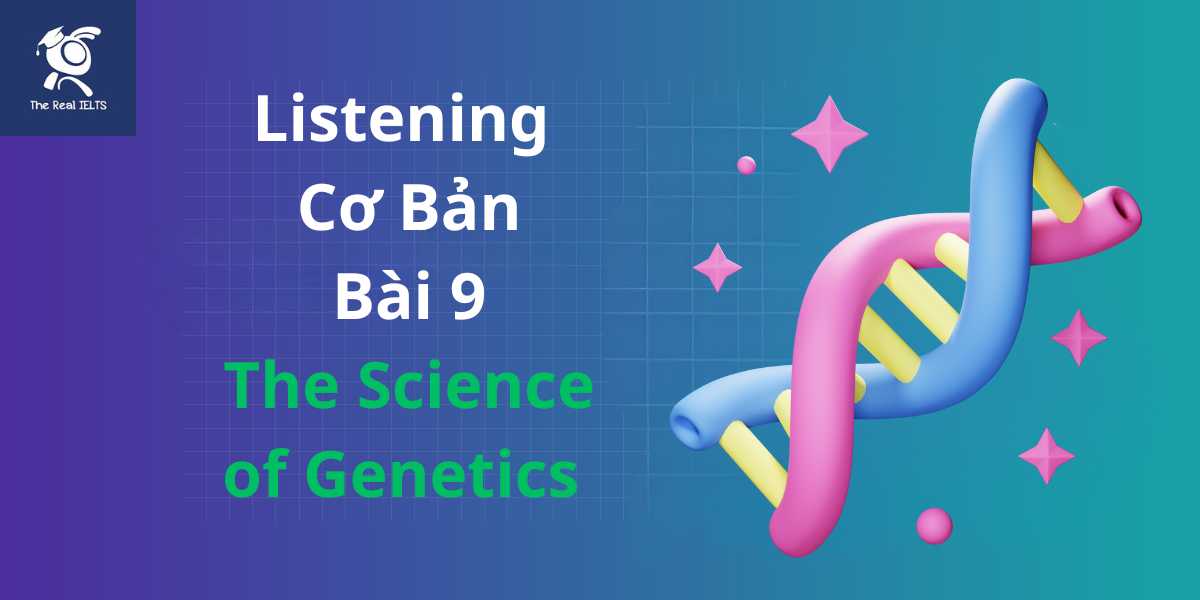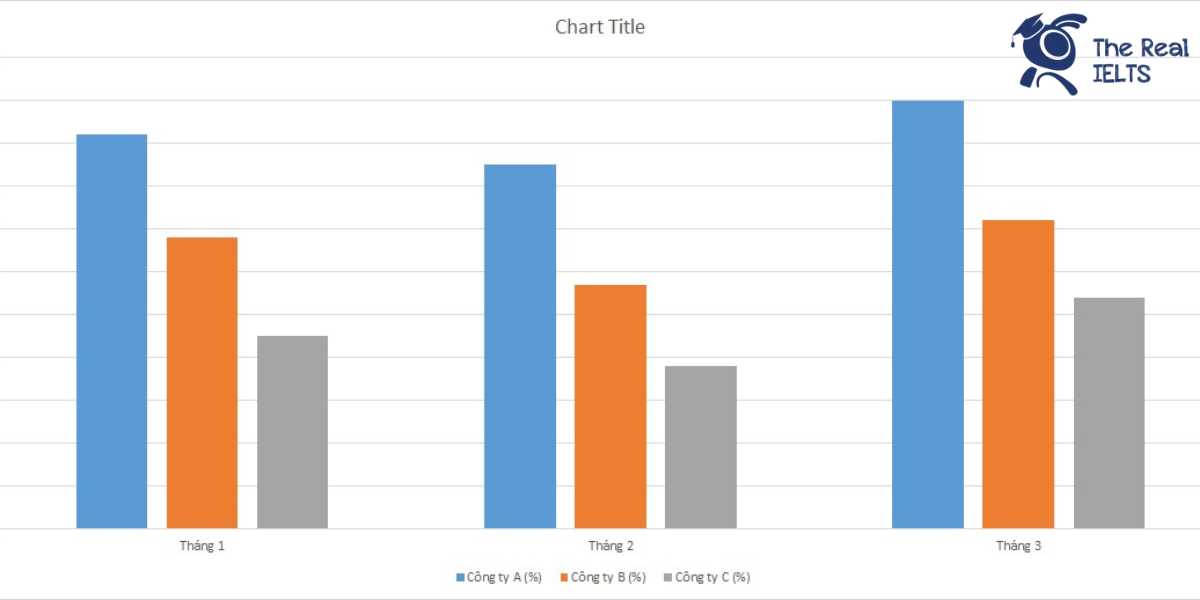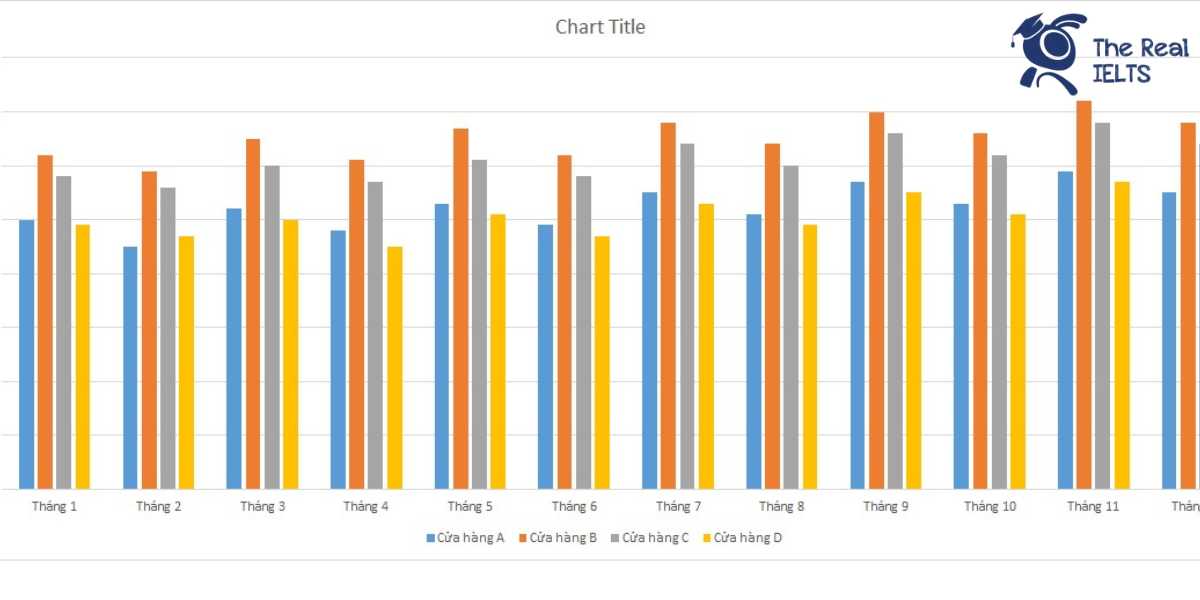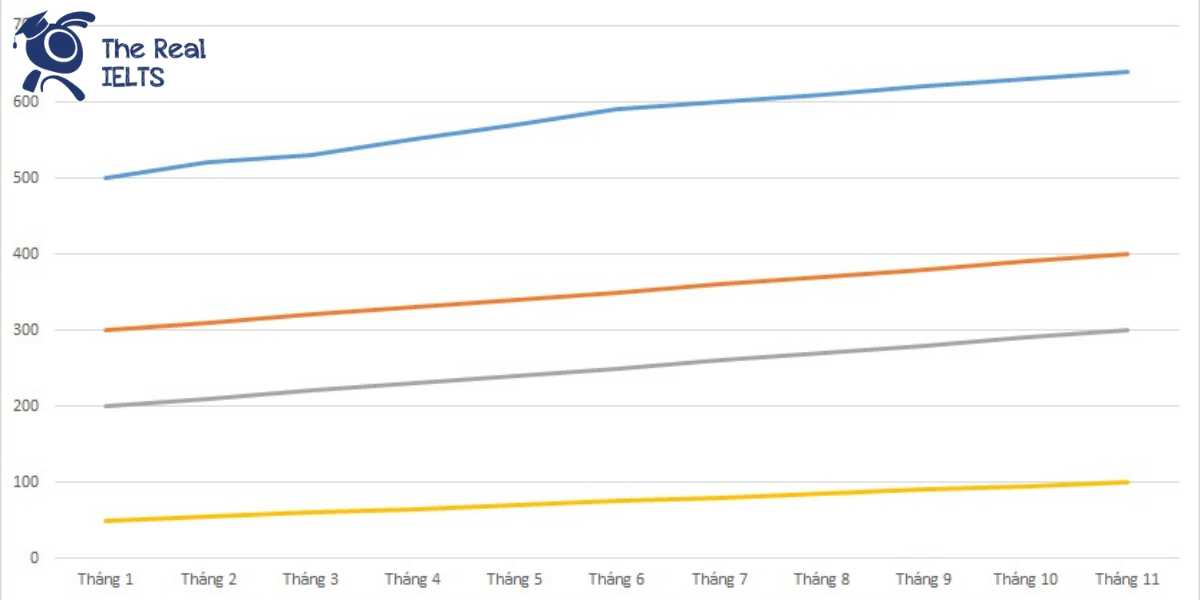Khoa học Di truyền (Genetics) là một lĩnh vực nghiên cứu về quá trình truyền đạt các đặc điểm di truyền từ thế hệ này sang thế hệ khác trong các loài sống. Nó nghiên cứu về cách mà các gen (đơn vị di truyền) được chuyển giao, biểu hiện và điều chỉnh trong các tổ chức và cá thể sống.
Bài Listening lần này sẽ có chủ đề về Khoa học di truyền (The science of Genetics)
Bài nghe
Câu hỏi The Science of Genetics
Listening Exercise 1:
- What is a gene, according to the professor?
- Explain the difference between genotype and phenotype.
- What topic did the professor move on to after discussing genes?
Listening Exercise 2:
- Who is considered the father of modern genetics?
- What type of organisms did Gregor Mendel conduct his experiments on?
- What were the two principles formulated by Mendel based on his experiments?
Listening Exercise 3:
- What are some potential benefits of genetic engineering, according to Dr. Smith?
- What concerns does Dr. Smith raise about genetic modification in humans?
- How does Ms. Patel suggest we approach the ethical considerations of genetic engineering?
Câu trả lời gợi ý
Listening Exercise 1:
- A gene is a segment of DNA that contains instructions for building proteins.
- Genotype refers to the genetic makeup of an organism, while phenotype refers to its observable characteristics.
- The professor moved on to discussing inheritance patterns.
Listening Exercise 2:
- Gregor Mendel is considered the father of modern genetics.
- Mendel conducted his experiments on pea plants.
- The two principles formulated by Mendel based on his experiments are the law of segregation and the law of independent assortment.
Listening Exercise 3:
- Dr. Smith mentions potential benefits such as improving human health and agriculture through genetic engineering.
- Dr. Smith raises concerns about the ethical implications of genetic modification in humans, such as the creation of designer babies and widening socioeconomic disparities.
- Ms. Patel suggests striking a balance between innovation and ethical considerations, emphasizing the potential benefits of genetic engineering while acknowledging the need to proceed with caution.
Bản Script: The Science of Genetics
Listening Exercise 1:
Listen to the following conversation between a professor and a student discussing the basics of genetics.
Professor: Good morning, class. Today, we’re going to delve into the fundamental concepts of genetics. Who can tell me what a gene is?
Student: Is it like a blueprint for our traits?
Professor: Exactly! A gene is a segment of DNA that contains the instructions for building proteins, which determine our traits. Now, can you explain the difference between genotype and phenotype?
Student: Genotype is the genetic makeup of an organism, while phenotype is its observable characteristics, right?
Professor: Spot on! You’re really grasping the concepts quickly. Let’s move on to our next topic: inheritance patterns.
Listening Exercise 2:
Listen to a lecture about Gregor Mendel and his experiments on pea plants.
Lecturer: Today, we’re going to explore the groundbreaking work of Gregor Mendel, often referred to as the father of modern genetics. In the 19th century, Mendel conducted experiments with pea plants to understand how traits are inherited. He focused on traits with two distinct forms, such as tall versus short plants. Through his meticulous breeding experiments, Mendel formulated the principles of inheritance, including the law of segregation and the law of independent assortment. These principles laid the foundation for our understanding of genetics today.
Listening Exercise 3:
Listen to a discussion on the ethical implications of genetic engineering.
Moderator: Our panel today will be discussing the ethical considerations surrounding genetic engineering. Dr. Smith, what are your thoughts on the matter?
Dr. Smith: Genetic engineering holds immense potential for improving human health and agriculture. However, we must proceed with caution to avoid unintended consequences. There are concerns about the ethical implications of genetically modifying humans, such as designer babies and the widening gap between the affluent and the less privileged.
Moderator: Thank you, Dr. Smith. Ms. Patel, what’s your perspective?
Ms. Patel: I agree that we need to tread carefully, but we shouldn’t overlook the benefits of genetic engineering. For instance, gene editing technologies like CRISPR could potentially eradicate genetic diseases. It’s essential to strike a balance between innovation and ethical considerations.
Conclusion:
Genetics is a multifaceted field with implications ranging from understanding our basic biological makeup to the ethical dilemmas posed by genetic engineering. By exploring these listening exercises, you’ve gained insight into the principles of genetics, the contributions of key figures like Gregor Mendel, and the ethical considerations surrounding genetic manipulation. Keep practicing, and you’ll be well-prepared for the IELTS listening exam.















